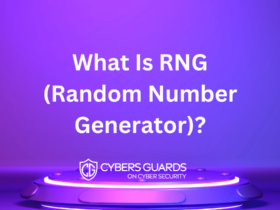Recent reports show that cybercrime within the gaming industry rose by 340 percent in 2021. In another report by ICD, video game revenues shot up by 20 percent in 2020 to reach $179.7 billion. It only makes sense that an industry ranking in such revenues will attract fraudsters. It also does not help that the monetization models used by online gaming sites make them very attractive cybercrime targets. So what exactly are online gaming companies doing to counter the threat of fraud and data theft?
Even as gaming companies work to secure their sites from their side, players are also urged to take measures to protect their funds and data. One way you do this is by going through this guide that helps you choose the best and most reliable apps and mobile casinos US
Cybercrime in Gaming
Online security experts agree that the recent growth in the online gaming industry has made it a high-value target for cybercrime. Reports show that the gaming industry will reach $200 billion in revenue in 2022, placing it above other lucrative industries like music. When an online gaming site fails to prioritize online security, it becomes vulnerable to the following attacks:
- Phishing: Phishing cyber-attacks use emails to steal personal and financial data. Victims receive emails that appear legitimate, but that direct them to fake pages and copy their login details.
- Identity Theft: This is the most prevalent cybersecurity problem. Perpetrators steal personal and financial data and use them to assume the victim’s identity.
- Data Theft: Data theft or manipulation is behind every cyber security breach. Data thieves may use this information or sell it online on black market sites.
- Malware Attacks: A malware attack disrupts entire systems and steals data from gaming records, with the players and game developers none the wiser.
Protecting Personal Data
One of the main concerns for gamers signing onto a gaming site is what happens to the data they provide. Gaming sites must meet compliance requirements for any data they retain for any length of time. Additionally, there are special laws about how to protect data relating to children. Protecting personal and financial data provided by gamers begins with following all these regulations, which vary from jurisdiction to jurisdiction.
Most gaming sites also use SSL encryption software, which automatically encrypts financial and personal data transfers during withdrawals and deposits. This encryption closes any data gaps through which gamer data could be stolen. Additionally, gaming sites have protocols on how data is obtained and processed within games to prevent keeping batches of identifiable information that could lead back to a player in the real world. The safety measures also involve protecting support functions on the website that could store user information for account management or payments.
Tracking Player Behavior
Gaming sites also monitor and track all actions and transactions completed through their servers at any time. This strategy is used to identify abnormal patterns and anomalies that could indicate a security breach and is completed with the help of AI technology. Because the information is collected and updated continuously, tracking is constant, and identifying risks is easy. The AI software on a gaming site could, for instance, flag down a user performing actions that are not typically part of a game. This could indicate that someone is trying to exploit a weakness in the game, which the site can then fix.
Encrypted Websites and Platforms
All reputable online gaming sites employ security measures like SSL and encryption certificates to safeguard gamer data from hackers. The Secure Socket Layer, or SSL, is the most common form of encryption used, and it encrypts user data during transactions or transmissions to prevent it from being stolen by a third party. In line with this, these sites also code their login pages and APIs with technologies like OWASP and perform regular penetration tests on these pages to identify and fix faults. Because login pages collect user data, most of the encryption is concentrated here.
Antivirus Software
Online gaming sites often also install strong antivirus software on their servers to scan for known malware and viruses. Such software detects and eliminates viruses from the servers and performs regular scans to keep the system clean. Consequently, user data remains protected at all times as long as the antivirus is active since it provides real-time online protection.
Cloud Gaming
Cloud gaming is only just taking off in the online gaming industry, but experts are already excited about the safety opportunities it represents. Essentially, streaming video of a game ensures that all components of the game only exist in the cloud – on the site’s side. This means that the online gambling site has more control over the infrastructure and can reduce its risk of attacks from viruses and aimbots, which exploit the gamer’s link to the site’s servers.
Conclusion
Online cyberattacks are on the rise even as the gaming industry booms. In addition to these safety measures, online gaming sites ensure the safety of their player’s data by raising awareness about the risks of account sharing, password sharing, and making purchases from third parties or unapproved vendors. This ensures that the gaming infrastructure is protected from both sides.










FIND US ON SOCIALS